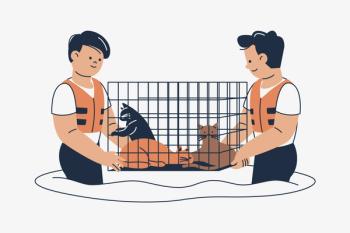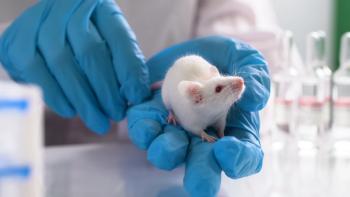
Texas A&M veterinary students get hands-on experience in shelter medicine
Fourth-year students will complete two-week rotations at Houston SPCA.
Fourth-year students from the Texas A&M College of Veterinary Medicine and Biomedical Science work alongside experts at the Houston Society for the Prevention of Cruelty to Animals (SPCA) in order to gain hands-on experience in cases of animal cruelty, neglect and trauma. Photo courtesy of PRNewsFoto/Houston SPCA
A new partnership between the Houston Society for the Prevention of Cruelty to Animals (SPCA) and Texas A&M College of Veterinary Medicine and Biomedical Sciences is requiring fourth-year veterinary students to complete a two-week rotation at the Houston SPCA. Students will work alongside SPCA staff in cases of animal cruelty, neglect and trauma.
The goal? To expose students to shelter medicine and animal welfare efforts, including rescue and forensics investigations for a variety of animals. The Houston SPCA investigates more than 9,000 animal abuse and neglect cases every year.
“The number of species the students will work with and the enormous number of animals we rescue from cruelty cases and through our 24-hour ambulance will provide students with an unparalleled opportunity,” Houston SPCA President Patricia Mercer says in a release.
College administrators believe the partnership will provide students a vast and medically challenging caseload unique to the shelter environment. “There’s no better way to gain immersive, hands-on experience than at a shelter such as the Houston SPCA, which sees more than 26,000 animals per year,” says Eleanor M. Green, DVM, DACVIM, DABVP, dean of the Texas A&M College of Veterinary Medicine and Biomedical Sciences.
According to a recent CATalyst Council study, 54 percent of veterinarians see animal shelters as competition. Yet the study also documented a willingness on the part of veterinarians and shelters to work together—as evidenced by the program in Texas and others like it.
For example, the University of Florida College of Veterinary Medicine and the Maples Center for Forensic Medicine are partnering with the American Society for the Prevention of Cruelty to Animals in order for students to earn a graduate certificate in veterinary forensic sciences. The certificate is offered solely online and covers topics including crime scene processing, scientific and legal principles of forensic evidence, animal cruelty and interpersonal violence and forensic pathology and entomology.
Newsletter
From exam room tips to practice management insights, get trusted veterinary news delivered straight to your inbox—subscribe to dvm360.




